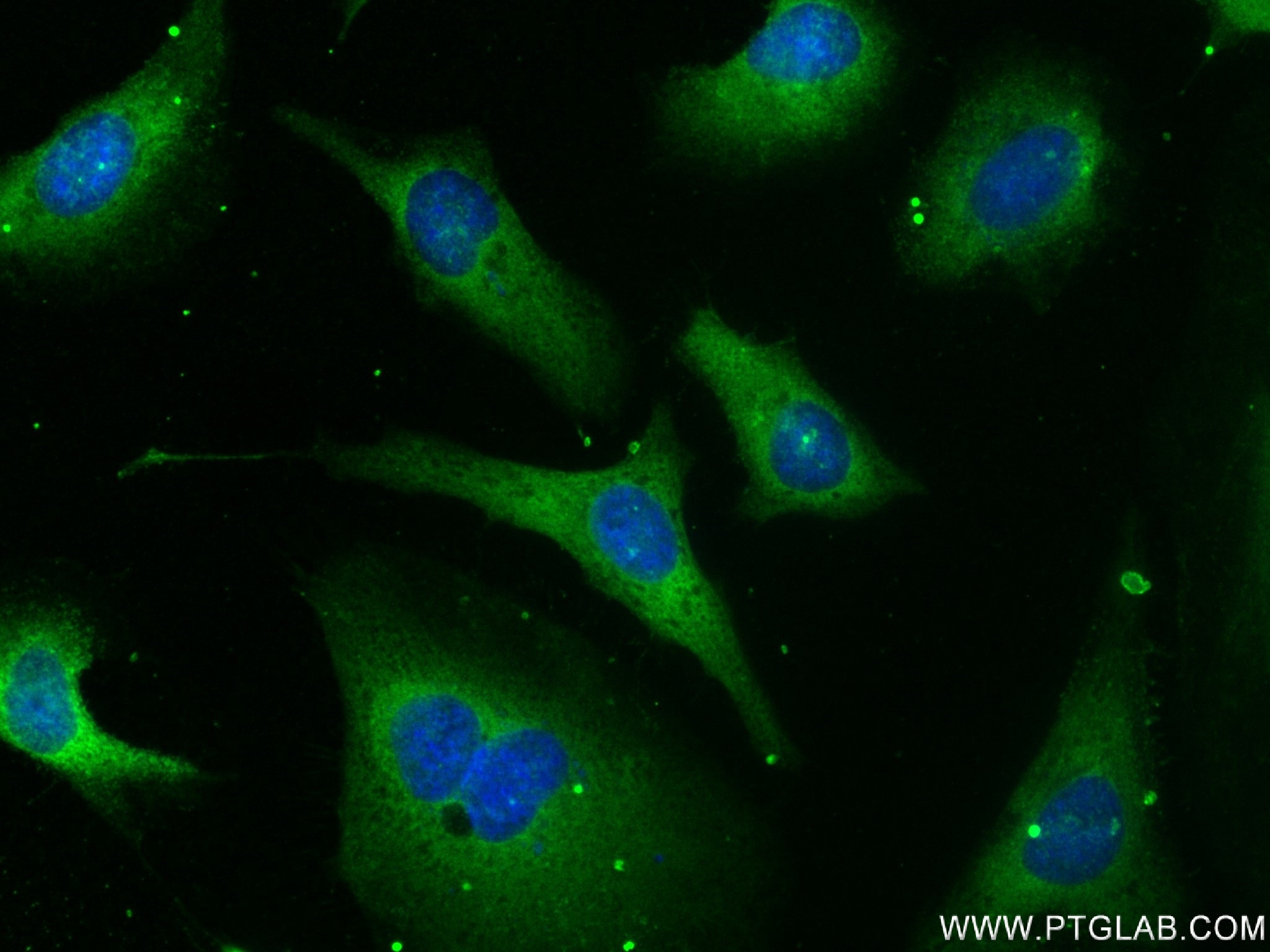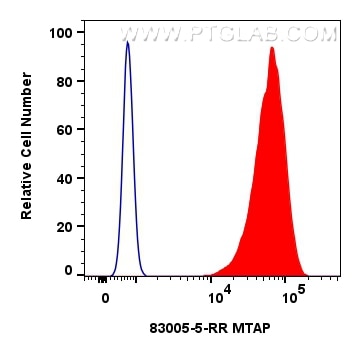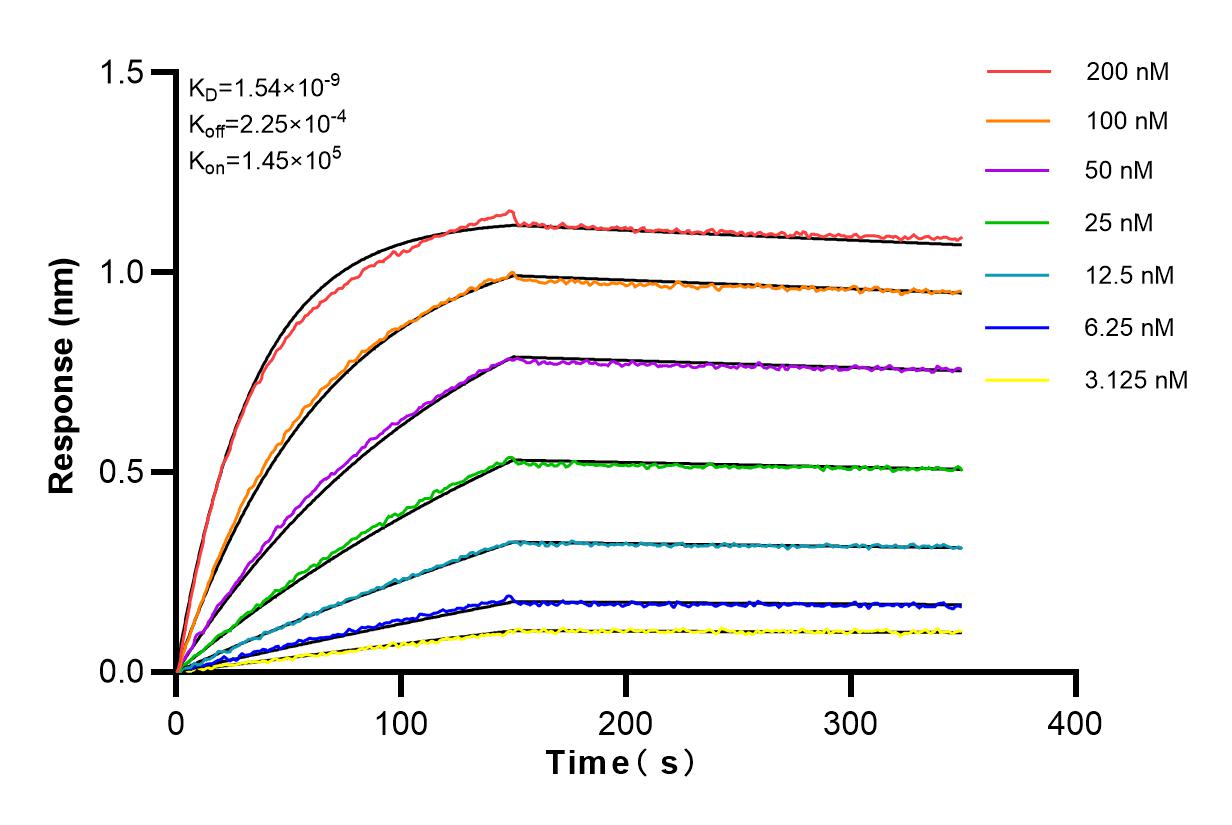Validation Data Gallery
Tested Applications
| Positive IF/ICC detected in | HeLa cells |
| Positive FC (Intra) detected in | HeLa cells |
Recommended dilution
| Application | Dilution |
|---|---|
| Immunofluorescence (IF)/ICC | IF/ICC : 1:125-1:500 |
| Flow Cytometry (FC) (INTRA) | FC (INTRA) : 0.25 ug per 10^6 cells in a 100 µl suspension |
| It is recommended that this reagent should be titrated in each testing system to obtain optimal results. | |
| Sample-dependent, Check data in validation data gallery. | |
Product Information
83005-5-RR targets MTAP in IF/ICC, ELISA applications and shows reactivity with human samples.
| Tested Reactivity | human |
| Host / Isotype | Rabbit / IgG |
| Class | Recombinant |
| Type | Antibody |
| Immunogen | MTAP fusion protein Ag2051 相同性解析による交差性が予測される生物種 |
| Full Name | methylthioadenosine phosphorylase |
| Calculated molecular weight | 283 aa, 31 kDa |
| GenBank accession number | BC018625 |
| Gene Symbol | MTAP |
| Gene ID (NCBI) | 4507 |
| RRID | AB_3670751 |
| Conjugate | Unconjugated |
| Form | Liquid |
| Purification Method | Protein A purfication |
| UNIPROT ID | Q13126 |
| Storage Buffer | PBS with 0.02% sodium azide and 50% glycerol{{ptg:BufferTemp}}7.3 |
| Storage Conditions | Store at -20°C. Stable for one year after shipment. Aliquoting is unnecessary for -20oC storage. |
Background Information
MTAP is a 5-deoxy-5-methylthioadenosine (MTA) phosphorylase, converting MTA to salvageable intermediates including adenine and 5-methylthioribose-1-phosphate. MTAP is abundant in normal cells, but it is frequently found to be deleted in a variety of cancers. Its deficiency is common in cancer cell lines as well as in primary leukemia, lung cancer, melanoma, bladder cancer, gliomas and breast cancer.
Protocols
| Product Specific Protocols | |
|---|---|
| IF protocol for MTAP antibody 83005-5-RR | Download protocol |
| FC protocol for MTAP antibody 83005-5-RR | Download protocol |
| Standard Protocols | |
|---|---|
| Click here to view our Standard Protocols |


